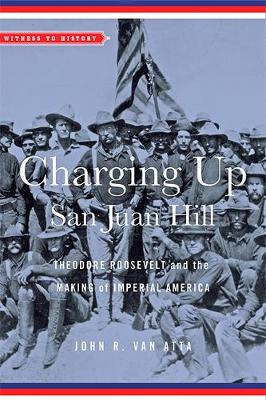Witness to History
2 total works
Northern congressmen leaped out of their seats to object to the proposed expansion of the slave "empire," while slave-state politicians voiced outrage at the northerners' blatant sectional attack. Although the Missouri confrontation ultimately appeared to end amicably with a famous compromise that the wily Kentuckian Henry Clay helped to cobble together, the passions it unleashed proved vicious, widespread, and long lasting. Van Atta deftly explains how the Missouri crisis revealed the power that slavery had already gained over American nation building. He explores the external social, cultural, and economic forces that gave the confrontation such urgency around the country, as well as the beliefs, assumptions, and fears that characterized both sides of the slavery argument. Wolf by the Ears provides students in American history with an ideal introduction to the Missouri crisis while at the same time offering fresh insights for scholars of the early republic.
How Theodore Roosevelt and his Rough Riders exemplified "manhood" and civic virtue.
Below a Cuban sun so hot it stung their eyes, American troops hunkered low at the base of Kettle Hill. Spanish bullets zipped overhead, while enemy artillery shells landed all around them. Driving Spanish forces from the high ground would mean gaining control of Santiago, Cuba, and, soon enough, American victory in the Spanish-American War. No one doubted that enemy fire would claim a heavy toll, but these unusual citizen-soldiers and their unlikely commander-39-year-old Colonel Theodore Roosevelt-had volunteered for exactly this kind of mission.
In Charging Up San Juan Hill, John R. Van Atta recounts that fateful day in 1898. Describing the battle's background and its ramifications for Roosevelt, both personal and political, Van Atta explains how Roosevelt's wartime experience prompted him to champion American involvement in world affairs. Tracking Roosevelt's rise to the presidency, this book argues that the global expansion of American influence-indeed, the building of an empire outward from a strengthened core of shared values at home-connected to the broader question of cultural sustainability as much as it did to the increasing of trade, political power, and military might.
At the turn of the twentieth century, Theodore Roosevelt personified American confidence. A New York City native and recovered asthmatic who spent his twenties in the wilds of the Dakota Territory, Roosevelt leapt into the war with Spain with gusto. He organized a band of cavalry volunteers he called the Rough Riders and, on July 1, 1898, took part in their charge up a Cuban hill the newspapers called San Juan, launching him to national prominence. Without San Juan, Van Atta argues, Roosevelt-whom the papers credited for the victory and lauded as a paragon of manhood-would never have reached a position to become president.

